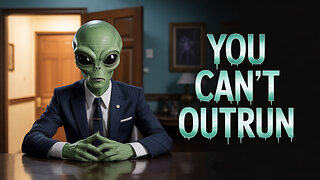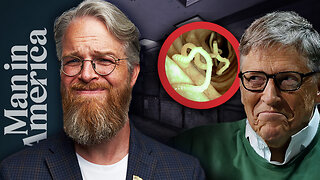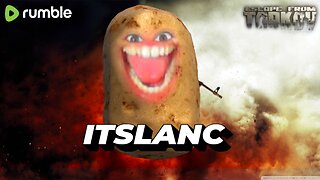Premium Only Content

Disco's Free II Stellar Radio
https://open.spotify.com/album/5vaBEjRzUTxjM2ZzH7gI7N
Someone left a comment on one of the Club Music videos asking "what about Disco?". I said that I would see what I could come up with and this is the first of three songs but I needed to find the answers to some questions before I could start. The first being "What makes Disco, Disco?" and I was curious about "Why did they dress so funny?" I was surprised to learn that Disco is not a dance or a genre of music but rather it was a movement. A protest of sorts. It does have certain characteristics like the beats and the mixing of certain genres to create the disco sound. Here's some of the info I found. If you can add more, Please leave it in the comments. Is the song danceable?
.
P.S. I don't know why the video generator puts everyone on the dance floor in their underpants. I changed out a couple but it is expensive to create new images. I feed it the song and it's supposed to create a video from the lyrics.
Disco
Disco is a vibrant music genre that emerged in the 1970s, characterized by several key elements:
Rhythmic Beats: Disco features a steady four-on-the-floor beat, often created by a bass drum hitting on every beat, which makes it very danceable.
Syncopated Bass Lines: Many disco tracks have groovy, syncopated bass lines that contribute to the genre's infectious rhythm.
Orchestrated Instrumentation: Disco often incorporates a wide range of instruments, including strings, brass, and synthesizers, giving the music a lush sound.
Vocals: Strong vocal performances, often with harmonies or call-and-response elements, are fundamental. Many disco songs feature soulful or funk-influenced singing styles.
Dance Culture: Disco music is closely associated with dance clubs and social dancing, often reflecting the vibrant nightlife of the time.
Fashion and Aesthetics: The disco scene also encompassed distinctive fashion, with flashy clothing and glamorous styles that became iconic in the era.
Cultural Influence: Disco has roots in various musical traditions, including funk, soul, and even rock, making it a melting pot of sounds and styles.
Overall, disco isn't just a musical genre; it's a cultural movement that brought together music, dance, and fashion.
History of Disco
Origins: Disco originated in the early 1970s, primarily in urban nightlife scenes like New York City and Philadelphia. It drew influences from various music styles, including funk, soul, and jazz.
Nightclubs and Dance Halls: The genre gained popularity in dance clubs, particularly in venues like Studio 54, which became emblematic of the disco era. DJs would mix records to create continuous dance music, often highlighting tracks from different genres.
Key Artists and Tracks: Notable artists like Donna Summer, the Bee Gees, Chic, and Gloria Gaynor helped define disco. Songs like “Stayin' Alive,” “I Will Survive,” and “Le Freak” became massive hits and are still popular today.
Cultural Significance: Disco became a symbol of liberation, especially for marginalized communities, including LGBTQ+ individuals and people of color. It fostered a sense of community and acceptance, encouraging self-expression through dance and fashion.
Backlash and Decline: By the late 1970s, disco faced a backlash, epitomized by events like the "Disco Demolition Night" in 1979, which marked a turning point where disco’s popularity waned. However, the genre left a lasting legacy.
Impact on Modern Music
Influence on Other Genres: Disco’s elements have been integrated into various genres, including pop, electronic dance music (EDM), and hip-hop. Artists today often sample or draw inspiration from classic disco tracks.
Dance Music Evolution: The four-on-the-floor beat and focus on rhythm in disco laid the groundwork for modern dance music. Genres like house and techno owe much of their structure to disco.
Cultural Representation: The emphasis on diversity and inclusivity in the disco scene has continued into modern music, shaping today’s music industry norms regarding representation and acceptance.
Revival and Nostalgia: The disco sound has seen revivals in the 2000s, with artists like Daft Punk, Bruno Mars, and Dua Lipa releasing tracks that capture the disco spirit, often merging it with contemporary production techniques.
Disco’s legacy is profound, influencing not just music, but also fashion, culture, and social movements.
#stellarradio #electronicmusic #aimusicvideo
-
 4:07
4:07
A variety mix of Music, Stories and Games
22 days agoWarning! This Song Will Piss Some People Off
324 -
 LIVE
LIVE
FreshandFit
4 hours agoAfter Hours w/ Girls
14,539 watching -
 LIVE
LIVE
SpartakusLIVE
5 hours agoNEW Update - BROKEN Attachment || Viewers REJOICE at the long-awaited Return of Their KING
5,845 watching -
 2:06:31
2:06:31
TimcastIRL
4 hours agoTrump To Deploy National Guard To Portland, Antifa Has Been WIPED OUT | Timcast IRL
127K107 -
 2:30:00
2:30:00
Laura Loomer
6 hours agoEP142: Loomer Prompts Calls For FBI To Investigate Palestinian Youth Movement
16.7K14 -
 1:26:34
1:26:34
Man in America
8 hours agoExposing the Cover-Up That Could Collapse Big Medicine: Parasites
17.6K8 -
 LIVE
LIVE
CHiLi XDD
4 hours agoTekken Fight Night
151 watching -
 LIVE
LIVE
ItsLancOfficial
9 hours agoFREAKY FRIDAY-GETTING FRIED-WELP! #TOTS
83 watching -
 1:09:11
1:09:11
Sarah Westall
5 hours agoRead the Signs: Are We Already Operating in a New Financial System? w/ Andy Schectman
20.7K4 -
 1:32:53
1:32:53
Flyover Conservatives
8 hours agoRicky Schroder Exposes How Hollywood Planted Him as a Child Star | FOC Show
22K3